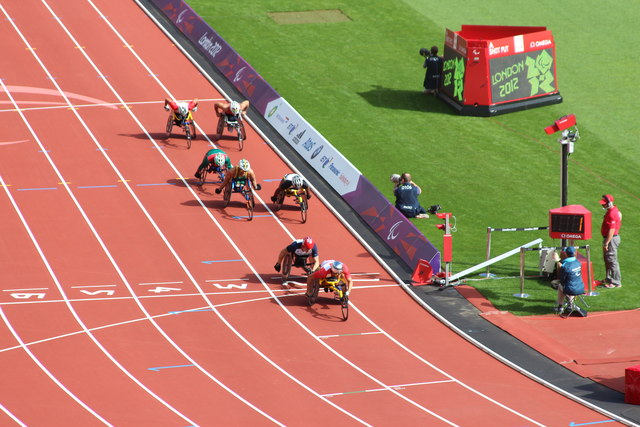Let’s put an end to the superpower trope – our disabled athletes deserve better
When sports media cover elite disabled athletes or Paralympians editors usually go for one of two options: paint the athlete as a superhuman whose disability is a superpower or a victim whose disability is a total tragedy.
Now, in a capitalist system where clicks and views are king and all critical thought has been dumped in the general waste bin (these people don’t recycle), of course editors choose the headlines that induce fascination or repulsion in their readers.

On the surface, celebrating a disability as a superpower seems positive. A superpower describes an ‘exceptional or extraordinary power or ability’ and thus challenges the narrative that a disability is negative or inferior, or so it seems.
The assumption underlying such concept is far darker though – that a disability is something that needs compensating for.
A common example of this is autistic athletes who are stereotyped as having ‘poor’ social skills but may harbour in-depth knowledge about their sport and the ability to hyperfocus on their performance.
The latter knowledge or ability will be labelled as a superpower, or in other words, something that can make up for their perceived ‘lack of’ or ‘deficit’ in social skills.
Alternatively, due to an athletes’ disability the expectation on them is often so wildly low that the only way they accrue gold medals or World Cups is by having an extraordinary power that only superman could have.
This is thanks to the medicalised view of disability that pervades society, according to which disability is nothing more than a biological disorder, deficit, or disease to be addressed and ‘cured.’
That is not to say there aren’t enjoyable and valuable experiences of being disabled. There are many disability-positive testimonies and if you don’t believe this you haven’t been listening.
However, labelling one’s disability as a ‘superpower’ reinforces a perceived intrinsic awfulness of disability and that anyone achieving elite athletic feats must be extraordinary.
Note, we rarely do this for non-disabled athletes either. I struggled to find headlines calling Michael Phelps’s hypermobility, unusually large arm span and feat, and reduced lactic acid production a superpower.
So, the trope serves to increase the binary between non-disabled and disabled athletes. The differences of disabled athletes are glorified as extraordinary and superhuman, rather than as a valuable, natural part of human diversity.
Furthermore, it feels inaccurate, if not downright out of touch, to call a disability a superpower in a society that forces disabled people to face profound environmental and social barriers, stigma, and prejudice.
British Paralympians face a plethora of barriers at home, exemplified by the United Nations findings that there have been ‘grave and systematic violations’ of Disabled persons’ rights in the UK.
The statistics support this, highlighting an egregious situation for the 16 million disabled people in the UK.
Ignorance remains rife as three out of four disabled people have experienced negative attitudes or behaviour in the last five years, according to the Family Resources Survey (2021 to 2022).
Motability found one in five disabled people were unable to travel due to lack of appropriate transport options in 2022, while the English Housing Survey found 91% of homes in the UK are not ‘visitable’ for disabled people. Full independence continues to be a distant dream.
And despite most disabled people wanting to work, the employment rate of disabled people is 53% compared to 83% for non-disabled people, highlighting a desperate need to improve support and accessibility around finding and keeping work.
However, critics might ask, what if an athlete chooses to identify their disability as a superpower?
To athletes I would encourage them to opt out of such a trope that reinforces that our lives are lesser or tragic in order to be deemed ‘acceptable’ to an audience that sees disabled athletes through stereotypes.
To the media, and particular, editors, I implore you to consider how such a trope further disadvantages the disabled community by reducing athletes to ‘superhuman’ figures devoid of a rich, complex life.
Even if it is part of an athlete’s testimony, editors must be careful not to foreground a stereotype that does not reflect the average disabled lived experience and places unrealistic expectations on what disabled life should look like.
Nor should acceptance of disabled athletes be conditional upon how much an athlete conforms to your perception of ‘normal.’ There is no such thing.
I want to offer an alternative to the black and white superpower versus tragedy narratives.
There are disabilities which wouldn’t exist in the absence of ableism in all its forms, there are disabilities that may be bad in causing discomfort, pain, ongoing medical care, and degeneration, and there are disabilities that may be good too by enriching and adding value to one’s life.
Disability, then, is merely a different way of living one’s life. Disabled people may be a minority, but it is a natural and beautiful part of human diversity.
Athletes can take pride in their disabilities and flourish too. They don’t need ‘superpowers’ to prove that.